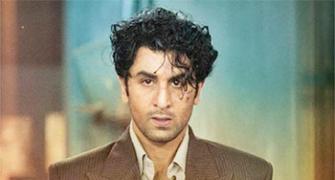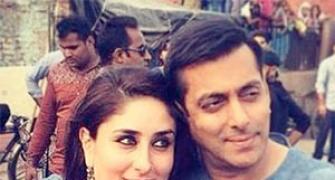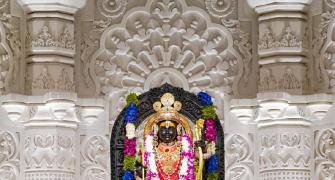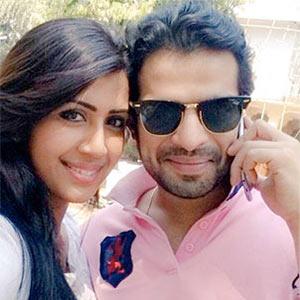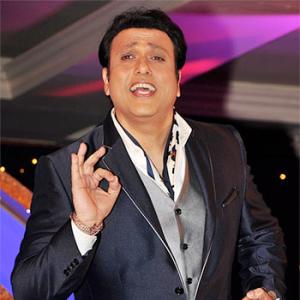'You need to be very careful to avoid certain features and stereotypes whenever you come across a cross cultural story. I was particularly anxious to avoid that in the new film because it’s more about India really.'
Arthur J Pais interviews John Madden, director of the Marigold Hotel films, on the difficult task of creating an equally hilarious and as feeling a sequel.
'The appeal (of The Best Exotic Marigold Hotel) I think was that (it) dealt, in an irreverent and affectionate way, with the lives and relationships of people who are, well, into their sunset years,' says actor Lillete Dubey in the production notes of the new film, the sequel.
‘This was one of the very few films that went into that zone in a joyous way, a film that said, ‘Hello, you may be 60 or 79, but life never stops surprising, unless you let it.”
Dubey's assessment can be applied to the new Marigold Hotel movie as well.
That spirit is further enhanced in the sequel, which is also directed by John Madden, the Oscar-nominated director, whose Shakespeare in Love won half a dozen key Oscars a few years ago.
Most of the veteran British cast is back in The Second Best Exotic Marigold Hotel, which will release on March 20 in India.
It stood at number three on the charts across America and Canada last week collecting an impressive $8.5 million.
If you recall, The Best Exotic Marigold Hotel, made for a very modest $10 million, earned over $135 million worldwide and received Best Picture nominations from The Hollywood Foreign Press (Golden Globes), BAFTA in London and the Screen Actors Guild.
Marigold II - taking advantage, again, of the odd but awesome, intriguing plotline of bonding between elderly British tourists and a brash, young Indian hotelkeeper, that made the first film so popular -- unfolds as Sunny Kapoor (Dev Patel) is planning to buy a new hotel, with the feisty, irreverent manager Muriel (two-time Oscar winner Maggie Smith, currently a rage in Downtown Abbey) by his side, even as he is getting ready for his marriage (to sweetheart Sunaina, played by Tina Desai).
His mother (Lillete Dubey), meanwhile, is drawn to a slightly mysterious American writer (Richard Gere), a guest in the hotel.
The other senior guests, led by Evelyn (Oscar winner Judi Dench), in the meanwhile, deal with their new lives and heartbeats.
Director John Madden, who has been in theatre and films for over two and half decades, speaks of his new adventure in an exclusive interview to Arthur J Pais/ Rediff.com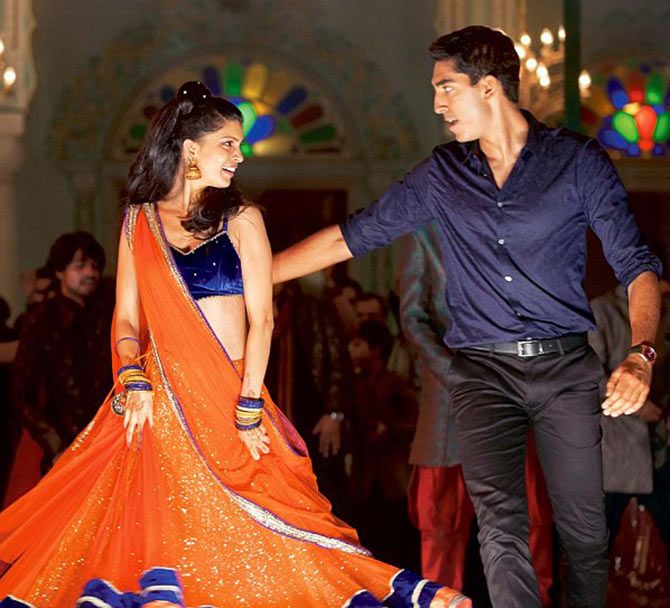
When you made the first film, you had the book to guide the screenplay and the writing process. For this film, you had to use your imagination and create a new narrative. Tell us about the screenplay writing process with Ol Parker.
We didn’t know that we would be making this when we made the first film.
The first film was an adaptation of the book by Deborah Morgan called These Foolish Things. It is a very interesting rich idea of outsourcing retirement as it were. We assumed and hoped the film would find an audience with the age group that its characters come from.
The audiences expanded way beyond that. It found an audience that has crossed geographical and cultural barriers, strangely. And also age barriers.
The possibility of continuing that story came up the first time we talked about a sequel. Ol Parker (my co-writer, who also wrote the first film) and I were a bit nervous. We had no interest in making this same film again. Sequels tend to be that, particularly when they are comedies. Although, I would like to call them melancholic comedy, both films actually.
When we started to look at the circumstances, we realised that the first film ended with a beginning (for a new) because these people made a colossal choice in their lives. (The choice) to leave their old lives behind in England and start a new life in India, at a point in their lives, when people would not normally do such things, because of their age.
The majority of the characters from the first film had all decided to stay. So, we sort of extrapolated outwards from that; and also what was crucially important, at the end of the first film, was a wedding. Because the Dev Patel character and the Tina Desai character were to play the parts to marry each other.
So it was a very, very organic process. We started with what happens to people of that age, who have now made the choice... they’ve become part of the working life of the India, and what is crucial and of primary concern of the film is what is happening to them emotionally.
Take for example, the characters of Judi Dench and Bill Nighy: At the end of the first film, you get the impression that a new life has opened up between them, and indeed it has. These characters have backed out of very, very, very long term and unhappy relationships in very protracted circumstances.
In Judi’s case, her character is bereaved and the husband, she thought she knew, has left her financially destitute.
In the case of Bill Nighy’s character, he’s finally broken free of the marriage that should have ended 30 years ago. It had stayed the same because of his fundamental decency and kindness.
So, a new relationship is not possible without a tremendous amount of conflicted feelings and so forth, even though, as people, they are tremendously highly compatible. Of course, they are living together, because they live in the same hotel. But that gives rise to some very funny and sort of touching relationship...
The architecture of the new film was the wedding.
You would know better than I do that that is a very protracted event in Indian culture; massively intrusive and inclusive and fraught with all kinds of difficult emotions and stresses. And that kind of forms the shape of the narrative.
This film too has three parts like its predecessor. But the three parts are dictated by events of the wedding. In and amidst the preparation for the wedding all the other characters’ stories weave in and out of that. And, to some extent are catalyzed by the wedding into a kind of Shakespearean kind of conclusion.
I think you get a very different feel from the first (film) because an enormous amount of it was shot at night. A large portion of the story is done with parties and celebrations; not always very happy ones. It gives us a different feel, I think. But, of course, it belongs in the same world. I see that these two films belong to one another: they are two halves of the same story.
If you look at each of the characters, you can sort of trace where they go from the very beginning of the first film to the conclusion of the second one, most obviously in Maggie Smith’s character (as the manager of the hotel). She has almost the biggest journey of anybody.
You have also said the new film is richer than the first?
This film is more about the family than the first one -- an unconventional family and its attempts to assimilate into a very different culture. The characters including Sonny (Dev Patel) and his mother (Lilette Dubey) are facing real decisions and choices that confront people at various points in their lives. It made for a rich canvas.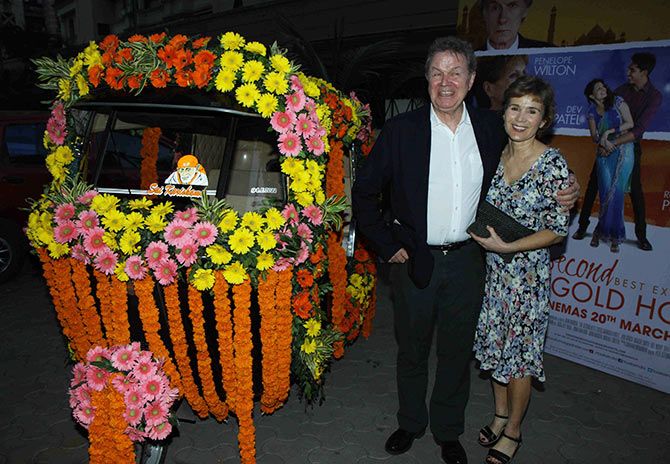
You have such a terrific opening scene, at a franchise headquarters, where Muriel (Maggie Smith), who wants American help to start a new hotel with Sonny, shoots her mouth and complains about the tepid American tea and how the English know to brew their tea.
When you think of Muriel’s character in the beginning of the first film, you will remember she is isolated, lonely, hostile -- racist, really -- suspicious of everything in the world. Then she comes to India and all her kind of assumptions and prejudices start to break down in the face of what she finds there; particularly, with her association with the lower caste girl who works in the hotel.
Now you think where would it be interesting to take her and what culture is she going to be completely allergic to?
It doesn’t take very long to come up with America. That’s not actually why we thought that way. I just had this idea about the new film beginning not where you expect. You imagine you’d be thrust back into India. But actually you are on a Californian highway -- that is the beginning of the film.
It’s just enjoyable putting that character in circumstances where she’s uncomfortable; because she takes no prisoners and she says what she thinks. That’s hilarious to watch.
Yes, her character has a very, very rich journey and a very moving journey, I think, in the end.
Talk about the changed relationship between Muriel and Sonny. Earlier she was a partner in the hotel. Now she is still a partner but more of a grandmother hen.
She is! If you look at it in terms of what happened to that character she’s never had a family of her own. She has that only happy period in her life of being part of another family which in the end she’s forced to leave. She was working partly as a governess, I suppose. And partly as a cleaner, really.
In the course of the first film she begins to find a place where she feels she belongs. Then with her extraordinary organisational skills, she becomes the care manager of the hotel...
I think Sonny’s character parallels India: He is anarchistic and very chaotic. So is India.
Sonny has always been chaotic in the way he perceives (things). But he is a brilliant thinker with brilliant ideas and brilliant imagination. His ideas are great.
What interests me was that in the previous film there was tremendous chemistry between Maggie Smith and Dev Patel. Maggie Smith adores Dev and admires him. We were able to build on that and it was very obvious. The story of the hotel would involve those two characters who are not married to each other. But a very profound emotional connection starts to grow between them.
In the second film, it is not just a cross cultural assimilation, but a cross generational assimilation -- the way in which the lives of the young have belonged to the lives of the old and vice versa and what you pass on.
In the line at the end of the film where Maggie Smith says “There is no ending, just the place where you leave the story and it’s your story now,” she says to Sonny; and then the couple (Sonny and Sunaina) get married.
The relationship between Sonny and Muriel is very rich. And very, very interesting. It is the core relationship at the centre of the film.
Another, at the core of the film, is (the one) between the Dev Patel character and the Tina Desai character, the engaged couple. There’s a lot of pain going on there, which eventually finds its way out into the light.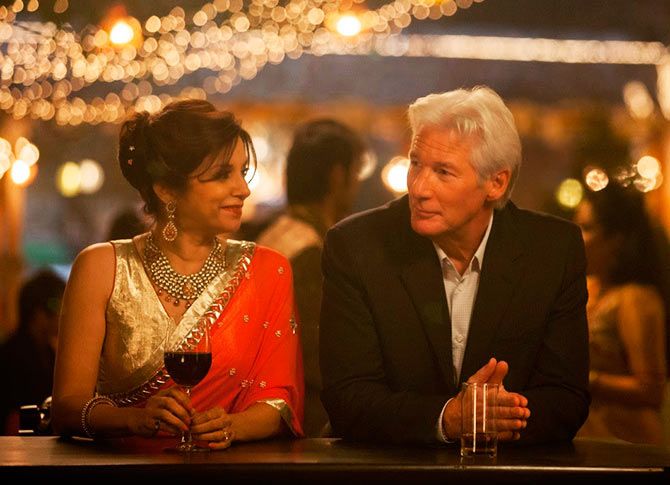
Lillete Dubey’s character is large here. Richard Gere is new to the film.
We knew where we were going with it because we knew that Lillete would be playing that part; we had already established that character in the first film.
The Lilette character had turned into a very recognisable character... (She is ) is the mother whose taking control of things -- (her) husband who died unhappy and had failed in his life -- she had spent the rest of her life compensating for that, trying to make sure that her beloved son (Sonny, Dev Patel) does not follow in his father’s footsteps.
That has made their relationship very brittle.
Since we had an opportunity -- as we approached the new film -- we decided to deconstruct that. In my view, she’s a woman who has become something she doesn’t want to be. I think we even wrote that line into the film. She has lost touch with who she is and was. She has become, not a monster, but someone she doesn’t recognise and doesn’t really want to be.
And, then what happens is a very, unexpected relationship -- an American writer comes to that hotel to write a book. She becomes very drawn to the character. That’s Richard Gere. It was a very interesting and nice thing to explore, and have Lillete play that role.
She had an incredible relationship with Richard in this film. She is very funny and relaxed and they hit it off incredibly well. We had to unwind some of that chemistry, because obviously she has to be very resistant to him in a large part of the story, because he tries to take advantage of her in some way. I think she’s got enormous reserves and resources as an actress.
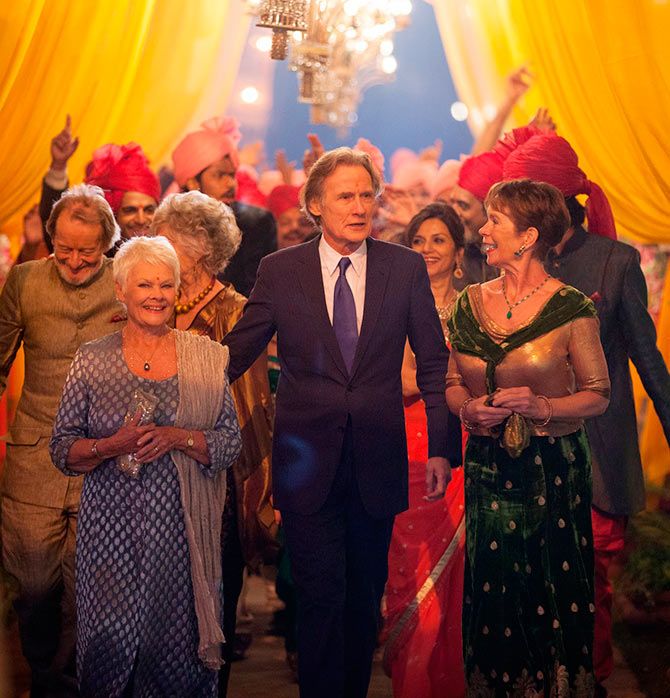
Judi Dench has new challenges in this film...
Yes, that was an idea that came to us... All the British characters have now developed relationships -- either working relationships or emotional relationships -- with Indian characters, because they are now living there obviously.
We were developing this relationship for Judi Dench’s character... She is now a buyer for a European company, buying fabrics or sorting fabrics and so forth, which she is doing as a trial thing. She lands the job to her amazement, given her age.
There’s a very nice relationship with this very nice Indian character (Shubhrajyoti Barat), who actually in a very small role in the first film. I didn’t hesitate to cast him in this film. He is such a fantastic actor...
These films did not turn out to be touristic films.
I’m very glad you say that. We never wanted the films to be that way.
I wanted the experience of both these films to be very tactile, very visceral and to give them a very strong sense of India...
The one quality I found was this phenomenal energy I saw. Visceral energy, of course, because that particular area of Jaipur, Rajasthan, was so rich and vibrant.
The energy of the city we filmed is so incredibly intoxicating.
The new film is very swift, very fast. It keeps moving from one thing to another in a way that I think, pulls the audience along with it, in a very interesting and unexpected kind of ride.
You need to be very careful to avoid certain features and stereotypes whenever you come across a cross cultural story. I was particularly anxious to avoid that in the new film because it’s more about India really.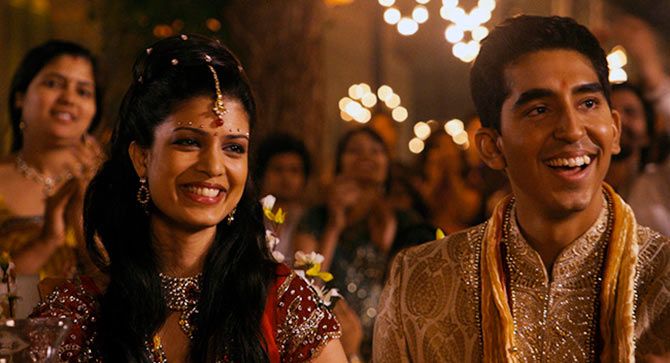
What were some of the things you said you were going to avoid?
The first film was told from the perspective of the characters, who arrived there. Some of them might be considered a cultural cliché because those are some of the assumptions the characters are making. For example, the Penelope Wilson character, who is the one who can’t cope with India at all.
In India, people are still wanting you to have a happy time. They might say something in order to make you happy, when it doesn’t necessarily bear relationship with the truth.
That happens in this film. When Judi Dench asks the merchant (Barat) who she has a relationship with, whether he has been to Mumbai before, he says ‘Oh sure very many times!’
Then she says: ‘You haven’t been there at all, isn’t it?’
He admits she is right and this becomes a key part of the relationship.
What I wanted to do this time was to try and see more of the warm perspective of the Indian character, like the merchant’s character, when people get under the surface, a little bit more than what we were able to do the first time.
Please speak about the relationship between Sonny and his mother in this movie.
I think he also strangely cares for his mother.
He has a sentimental education, an emotional education. He grows up in this film. He has to go through a lot of pain and concern and sort of desperation in order to arrive to a more mature place.
That affects his relationship with his mother, who has a certain role in his life. He doesn’t want her talking to any of the guests at the hotel. He assumes that the rest of the world will see her the way she projects herself.
Actually, she discovers herself in the film in a different way. And he is prompted to respond to her in a different way. There’s, of course, a very strong emotional bond between them, which is uncovered.
It is a very funny that he should abhor the idea that anybody should find his mother attractive or appealing. This is hilarious. As the story develops, something else also happens. That is one of the surprises in the film.


